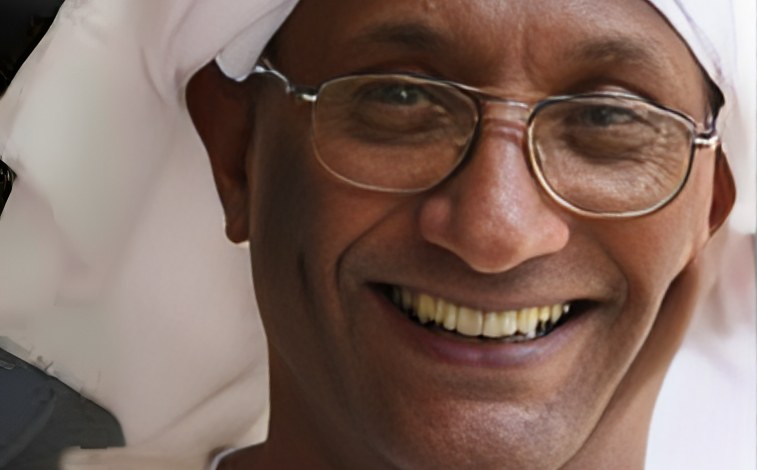“The Inevitability of ‘Blood’ in Oppression: The Liberal Guilt Complex (Part 2 of 2)”

By Abdallah Ali Ibrahim
Summary:
South Sudan, as a region within Sudan, served as a significant testing ground for critical race theory during the Sudanese civil war. This was starkly highlighted when news broke of South Sudanese citizens stranded in Sudan since the 2011 secession being killed on accusations of collaborating with the Rapid Support Forces. This act was strongly condemned by their government.
Critical race theory resonated deeply with Sudanese liberals, particularly through what is known as the “liberal guilt complex.” These liberals, worn down by prolonged resistance against successive dictatorial regimes, found themselves weakened. Meanwhile, marginalized movements like the Sudan People’s Liberation Movement (SPLM), which promoted the New Sudan vision, grew increasingly influential. This vision, born from the center-periphery dynamic, gained widespread traction.
According to this ideology, the New Sudan would be forged through the marginalized groups’ armed struggle, breaking the centralized grip of Khartoum and sharing power and wealth equitably. Consequently, the liberal elite ceased to lead the national renaissance strategy, as they had during the anti-colonial movement. Nor did they influence those shaping the armed periphery. In fact, many liberals joined the marginalized groups, abandoning their civil resistance base in urban centers to take up arms alongside them. One insightful observer described this shift as a migration “from the trade union to the jungle.”
These liberals became disenchanted with their own culture and history, especially as successive dictatorial regimes—embodied by the so-called “Islamo-Arab” identity—oppressed African ethnic peripheries through violent cultural domination. This led to a guilt complex rooted in the perceived sins of their compatriots, causing them to regret their failed attempts to forge national unity. This regret often turned into a bitter self-critique, blaming their forebears not only for histories of slavery but also for ties to despotic rulers whose actions were a source of shame.
The political failure of these left-liberal elites to foster national unity drove them toward identity politics. Over the decades leading up to South Sudan’s independence, armed periphery groups rose in prominence, and the liberals’ focus shifted to documenting and amplifying ethnic grievances. This culminated in works such as “Exposing the Northern Elites”—an ethnically charged critique of slavery, exploitation, and violence that served more as a political stance against dictatorship than a scholarly investigation. One notable contributor to this discourse, the Southern Sudanese writer and politician Francis Deng, captured this sentiment with his widely quoted remark, “What we do not talk about is what divides us.” Recent confrontations have unearthed old chapters from this archive.
Sudanese liberals fell into a trap that American philosopher Richard Rorty once criticized in U.S. liberals. He argued that they abandoned the creation of a unifying national political strategy in favor of identity politics, championing African Americans, LGBTQ+ groups, and others. As a result, their sense of shared national identity as citizens eroded. Another American philosopher, Mark Lilla, similarly noted that liberals retreated from national solidarity, metaphorically moving “from the mountain to self-made caves.”
The historical memory behind attacks on Sudanese in South Sudan reflects remnants of Northern liberal elites’ culture. Despite their struggles for democracy against dictatorial regimes since Sudan’s independence in 1956, and their success in repeatedly overthrowing these regimes to restore parliamentary governance, they failed to address the grievances of the armed periphery. This failure undermined their work, leaving a bitter legacy of missed opportunities.
One glaring example is the aftermath of Sudan’s 1985 revolution. The SPLM boycotted the 1986 elections, unlike other Southern parties that participated. Instead, the SPLM proposed a national constitutional conference, sidelining the Constituent Assembly’s role in addressing national issues. Key among these issues was the relationship between religion and the state, particularly in opposition to President Jaafar Nimeiri’s 1983 September laws, which the SPLM vehemently opposed. Liberals supported the idea of a constitutional conference, even as debates over the Islamization of the state raged in the public and parliamentary spheres.
During this period, the National Islamic Front (NIF), led by Hassan al-Turabi, aggressively pursued the Islamization agenda with cunning strategies. Rather than directly confronting this challenge in the Constituent Assembly, where the battle was being fought, liberals dismissed it. For instance, Mansour Khalid, in his seminal work “The Sudanese Elite and the Addiction to Failure,” referred to the NIF’s push for Sharia as “madness” rather than legitimate political activity. This attitude reflected a modernist elitism that failed to recognize the political agency of their opponents within the democratic framework.
Moreover, Mansour saw no issue with the SPLM’s election boycott, rationalizing it as an act of defiance. This, despite the hope that the SPLM would use its political weight to advocate for secularism within democratic processes. Instead, the SPLM chose armed struggle, sidelining the Constituent Assembly, which was later dissolved by the NIF’s 1989 coup. Ironically, the SPLM would eventually negotiate with the same Islamist regime in 2005, outside any legitimate parliamentary framework.
The phrase “lift your bed” is often used to chide those who lament a lost cause. This may apply to Sudanese liberals mourning South Sudan’s secession. When South Sudan became an independent state, each nation regained its distinct identity. Yet, some Sudanese elites belittled the liberation of Heglig in 2012 and viewed South Sudanese attacks on Sudanese citizens with suspicion. Reconciling with the reality of South Sudan’s independence could help these liberals better understand the pitfalls of their approach, allowing them to finally “fold the bed” and move forward.



